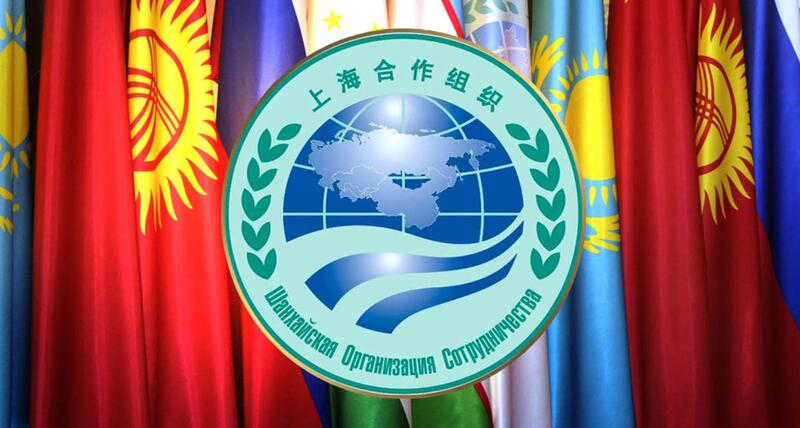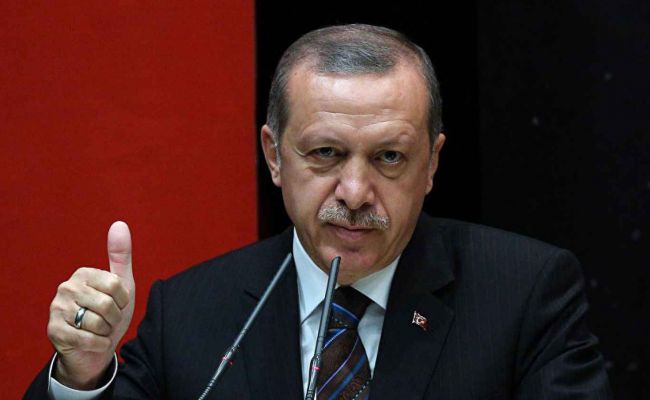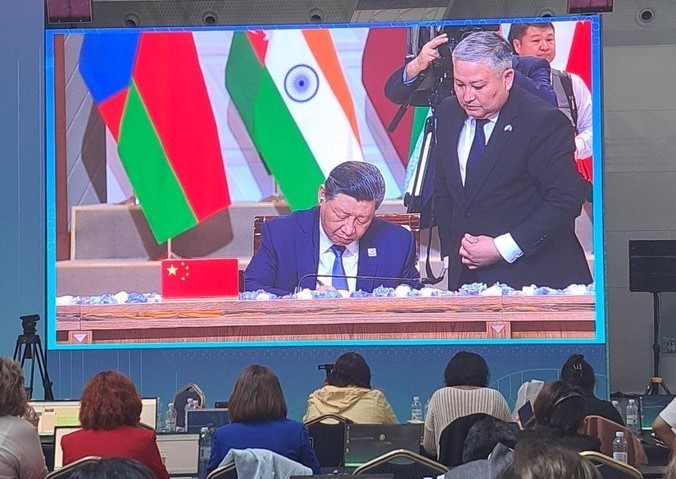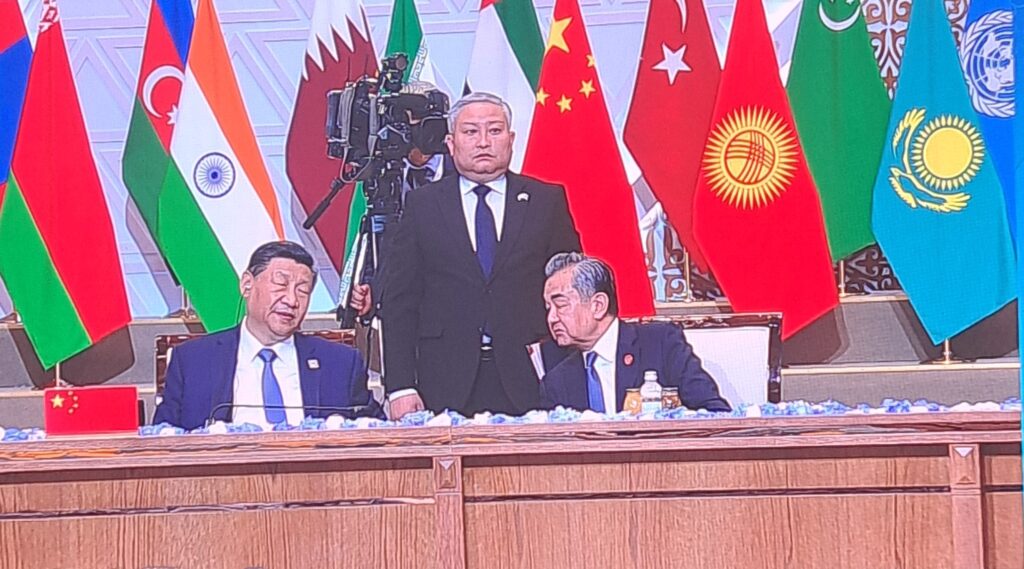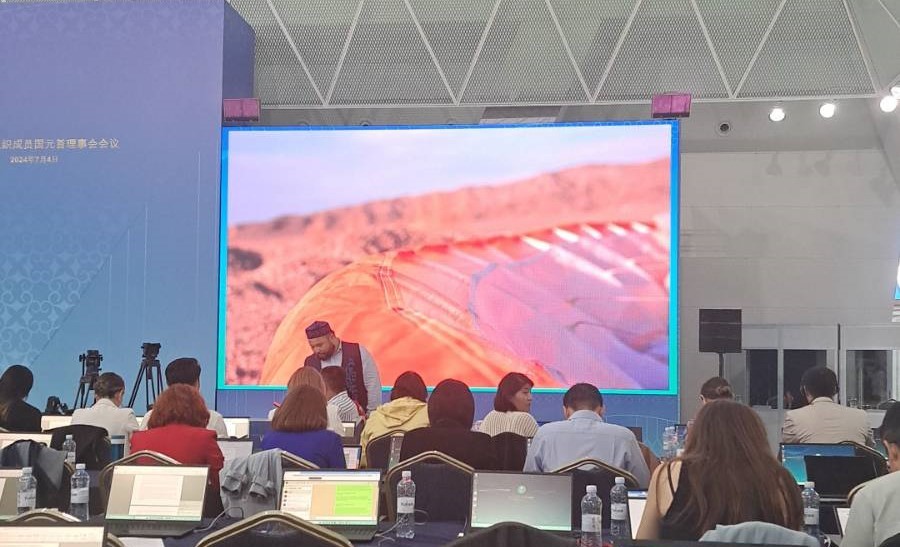The Western media’s binary response to the latest Shanghai Cooperation Organization (SCO) summit in Astana creates an unnecessary – and perhaps unintentional – “us-versus-them” dichotomy. Characterizing the SCO as the “anti-NATO” alliance where China, Russia and Iran come together, this style of coverage makes no mention of the evident efforts of the majority of post-Soviet states to balance Russia’s decades-long influence in the region. It is also notable that the same outlets serving up this black and white coverage are not even in attendance at the summit, preferring to take aim from abroad.
Central Asian states cannot escape the realities of their geography and have to largely rely on Russia and China for their economic prosperity. At the same time, their future independence requires that they are a respected part of the international rules-based order as well as on their increased contribution to global supply chains.
Kazakhstan’s recent democratic reforms are in direct contrast to the authoritarian image cast on so-called “anti-NATO” countries. Armenia has announced plans to quit Russia’s Collective Security Treaty Organization (CSTO) military alliance. Generally, the countries in the region have – with different degrees of enthusiasm – implemented a multi-vector foreign policy, including following international sanctions against Russia and issuing statements supporting the “territorial integrity of Ukraine.” Uzbekistan’s courts even went so far as to convict a citizen for joining Russian troops fighting in Ukraine.
Those looking to force an antiquated one-size-fits-all Cold War paradigm on Central Asia will ultimately be frustrated. The ongoing SCO event in Astana is bringing together a mainly Eastern-centric group of leaders speaking about deeper cooperation among the Organization’s members. While the Western press may simply decry this gathering as anti-Western, the fact that Central Asia stood in support of international sanctions against Russia and stayed neutral in the conflict with Ukraine, much to the chagrin of Vladimir Putin and his retinue, shows the region holds more shades of grey than stark black and white.
Central Asia cannot be expected to fall entirely into the orbit of Western or Eastern leaning powers. The region’s republics will, and should, aim to be aligned with both. Arguably, the West, Russia, and China may all be disappointed in the end, but that outcome may well be in the best interests of the Central Asian states.



